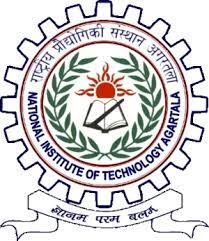Explore diverse career paths and job opportunities available to M.Tech in Biological Engineering graduates. These may include roles such as bioprocess engineer, biotechnology researcher, and bioinformatics specialist, in high-demand sectors across industries such as healthcare, biopharmaceuticals, a
Career and Job Opportunities after completing M.Tech Biological Engineering
Biological engineering is a dynamic field that applies principles of biology and engineering to develop innovative solutions in healthcare, agriculture, environmental conservation, and more. Pursuing an M.Tech in Biological Engineering opens doors to diverse career opportunities that bridge the gap between biology and technology. In this guide, we will explore the program, its core components, and the promising career prospects available to graduates.
M.Tech in Biological Engineering Overview
An M.Tech program in Biological Engineering typically spans two years and provides in-depth knowledge in various aspects of biological and engineering sciences. The curriculum includes core courses in areas such as:
1. Bioprocess Engineering:
This involves the study of biological processes for the production of pharmaceuticals, biofuels, and other bioproducts.
2. Biomedical Engineering:
Students learn about the design and development of medical devices, tissue engineering, and healthcare technologies.
3. Genetic Engineering:
Genetic engineering courses cover gene editing techniques, genetic modification, and biotechnology applications.
4. Biological Systems Modeling:
This area focuses on mathematical modelling and simulation of biological systems to aid in research and development.
5. Bioinformatics:
Students gain skills in computational biology, including the analysis of biological data, genomics, and proteomics.
6. Biological Materials and Biomimetics:
This involves the study of materials inspired by biological systems and their applications in engineering.
7. Bioproduction and Fermentation Technology:
Students learn about industrial-scale production of biological products, including biopharmaceuticals and biofuels.
M.Tech In Biological Engineering Career Opportunities
Graduates of an M.Tech program in Biological Engineering have a wide range of career opportunities in various sectors:
1. Bioprocess Engineer:
Bioprocess engineers work in industries that produce biopharmaceuticals, enzymes, and biofuels, overseeing the design and optimization of production processes.
2. Biomedical Engineer:
Biomedical engineers develop medical devices, prosthetics, and healthcare technologies, working to improve patient care and healthcare systems.
3. Genetic Engineer:
Genetic engineers are involved in genetic modification, gene therapy, and biotechnology research, contributing to advancements in agriculture and medicine.
4. Biotechnologist:
Biotechnologists apply biological principles to solve real-world problems in fields like agriculture, food production, and environmental management.
5. Bioinformatics Analyst:
Bioinformatics analysts use computational tools to analyze biological data, aiding in genomics, drug discovery, and personalized medicine.
6. Tissue Engineer:
Tissue engineers focus on regenerative medicine, creating artificial tissues and organs for transplantation and medical research.
7. Biological Systems Modeler:
Modelers use mathematical and computational techniques to simulate and analyze complex biological systems, aiding in drug development and research.
8. Biological Research Scientist:
Graduates can work in research roles, exploring topics such as cell biology, microbiology, and molecular biology.
9. Environmental Engineer:
Biological engineers contribute to environmental conservation efforts, including wastewater treatment, pollution control, and ecosystem restoration.
M.Tech In Biological Engineering Job Profiles
Within these sectors, graduates of M.Tech in Biological Engineering can hold various job profiles:
1. Bioprocess Engineer:
Specializes in optimizing bioproduction processes and ensuring product quality.
2. Biomedical Device Developer:
Works on the design and development of medical devices and technologies.
3. Genetic Editing Specialist:
Focuses on genetic modification techniques like CRISPR-Cas9 for research and therapeutic applications.
4. Bioinformatics Scientist:
Analyzes biological data to discover patterns and insights, often in genomics or proteomics.
5. Tissue Engineer:
Designs and creates artificial tissues for medical purposes.
6. Biological Research Associate:
Conducts laboratory research and experiments to advance biological knowledge.
7. Environmental Biotechnologist:
Applies biological principles to address environmental issues, such as pollution and resource conservation.
M.Tech In Biological Engineering Salary Prospects
Salaries for M.Tech graduates in Biological Engineering can vary based on factors such as experience, location, and job role. However, here are some approximate salary ranges for various positions:
1. Entry-Level Bioprocess Engineer: ?400,000 to ?800,000 per year
2. Biomedical Engineer: ?400,000 to ?900,000 per year
3. Genetic Engineer: ?400,000 to ?900,000 per year
4. Bioinformatics Analyst: ?400,000 to ?800,000 per year
 4 Years
4 Years
 Under Graduate
Under Graduate
 Engineering
Engineering
 Full Time
Full Time







 back
back

